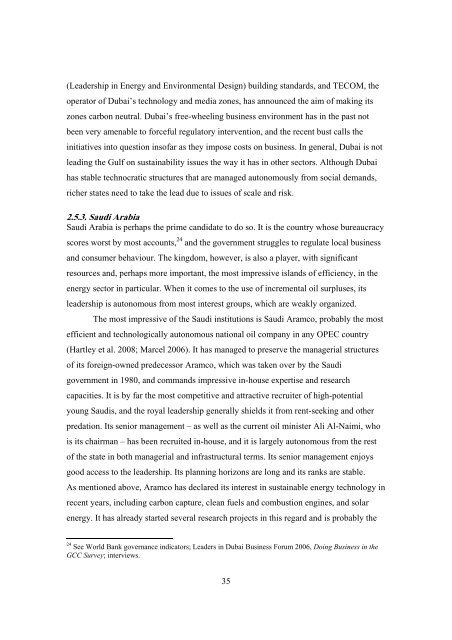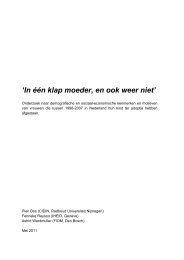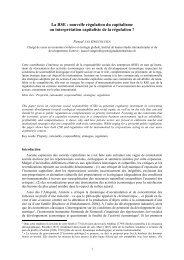PDF - Graduate Institute of International and Development Studies
PDF - Graduate Institute of International and Development Studies
PDF - Graduate Institute of International and Development Studies
Create successful ePaper yourself
Turn your PDF publications into a flip-book with our unique Google optimized e-Paper software.
(Leadership in Energy <strong>and</strong> Environmental Design) building st<strong>and</strong>ards, <strong>and</strong> TECOM, the<br />
operator <strong>of</strong> Dubai’s technology <strong>and</strong> media zones, has announced the aim <strong>of</strong> making its<br />
zones carbon neutral. Dubai’s free-wheeling business environment has in the past not<br />
been very amenable to forceful regulatory intervention, <strong>and</strong> the recent bust calls the<br />
initiatives into question ins<strong>of</strong>ar as they impose costs on business. In general, Dubai is not<br />
leading the Gulf on sustainability issues the way it has in other sectors. Although Dubai<br />
has stable technocratic structures that are managed autonomously from social dem<strong>and</strong>s,<br />
richer states need to take the lead due to issues <strong>of</strong> scale <strong>and</strong> risk.<br />
2.5.3. Saudi Arabia<br />
Saudi Arabia is perhaps the prime c<strong>and</strong>idate to do so. It is the country whose bureaucracy<br />
scores worst by most accounts, 24 <strong>and</strong> the government struggles to regulate local business<br />
<strong>and</strong> consumer behaviour. The kingdom, however, is also a player, with significant<br />
resources <strong>and</strong>, perhaps more important, the most impressive isl<strong>and</strong>s <strong>of</strong> efficiency, in the<br />
energy sector in particular. When it comes to the use <strong>of</strong> incremental oil surpluses, its<br />
leadership is autonomous from most interest groups, which are weakly organized.<br />
The most impressive <strong>of</strong> the Saudi institutions is Saudi Aramco, probably the most<br />
efficient <strong>and</strong> technologically autonomous national oil company in any OPEC country<br />
(Hartley et al. 2008; Marcel 2006). It has managed to preserve the managerial structures<br />
<strong>of</strong> its foreign-owned predecessor Aramco, which was taken over by the Saudi<br />
government in 1980, <strong>and</strong> comm<strong>and</strong>s impressive in-house expertise <strong>and</strong> research<br />
capacities. It is by far the most competitive <strong>and</strong> attractive recruiter <strong>of</strong> high-potential<br />
young Saudis, <strong>and</strong> the royal leadership generally shields it from rent-seeking <strong>and</strong> other<br />
predation. Its senior management – as well as the current oil minister Ali Al-Naimi, who<br />
is its chairman – has been recruited in-house, <strong>and</strong> it is largely autonomous from the rest<br />
<strong>of</strong> the state in both managerial <strong>and</strong> infrastructural terms. Its senior management enjoys<br />
good access to the leadership. Its planning horizons are long <strong>and</strong> its ranks are stable.<br />
As mentioned above, Aramco has declared its interest in sustainable energy technology in<br />
recent years, including carbon capture, clean fuels <strong>and</strong> combustion engines, <strong>and</strong> solar<br />
energy. It has already started several research projects in this regard <strong>and</strong> is probably the<br />
24 See World Bank governance indicators; Leaders in Dubai Business Forum 2006, Doing Business in the<br />
GCC Survey; interviews.<br />
35




